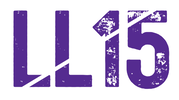Preceding the 15th Linguistic Landscape conference, we are happy to announce the 1st New Zealand Linguistic Landscape Winter School (18-19 June 2024).
The LL Winter School features a research roundtable as well as a workshop facilitated by Prof. Christopher Stroud. A second workshop is also be featured, facilitated by Prof. Crispin Thurlow and members of the Articulating Rubbish project team.
The LL Winter School additionally includes an examination of local linguistic landscapes during a walking tour in the city. The Winter School also looks at how to apply methods on the ground and how to apply findings to teaching practices.
The LL Winter School is open to all. Participants can choose to attend the LL Winter School in addition to or independent of the LL15 conference.
To register for the LL Winter School, please click the 'Registration' tab above.
The LL Winter School features a research roundtable as well as a workshop facilitated by Prof. Christopher Stroud. A second workshop is also be featured, facilitated by Prof. Crispin Thurlow and members of the Articulating Rubbish project team.
The LL Winter School additionally includes an examination of local linguistic landscapes during a walking tour in the city. The Winter School also looks at how to apply methods on the ground and how to apply findings to teaching practices.
The LL Winter School is open to all. Participants can choose to attend the LL Winter School in addition to or independent of the LL15 conference.
To register for the LL Winter School, please click the 'Registration' tab above.
LL Winter School Programme
PDF of programme also available here
*RH = Rutherford House
Tuesday, 18 June 2024
0900 – 1200
RH MZ03
TAKING THE ‘PULSE’ OF SEMIOTIC LANDSCAPES
Organizer: Christopher Stroud
For full details and workshop pre-task click here
Please click here to access the folder to which you should upload your contributions (at least a week in advance).
In this ‘experimental’ workshop, we explore a geopolitically southern African approach to ‘knowing the world’ as proposed by the Senegalese Statesman-philosopher Senghor (cf. Diagne), namely rhythm. The question we explore is to what extent attention to ‘rhythm’ may offer one methodological approach to understanding the co-constitution of place and person(s) in semiotic landscapes.
Lunch break
RH MZ02
1330 – 1630
RH MZ03
REFRAMING EDUCATIONAL SPACES
Organizer: Gail Cormier
In this interactive workshop, practical applications of LL research will be shared. Through examples of LL workshops with pre-service teachers, cohorts of school administrators, and government officials, we will discover how the LL can be used as a multimodal pedagogical resource to recognize and leverage minority languages in educational spaces. On campus, we will simulate data collection through a modified version of the tourist guide technique (Szabó, 2015) and data analysis will be initiated by photo-elicitation interviews and multimodal notetaking strategies. Living this experience will be beneficial to LL researchers, students, educators, and anyone wishing to blur the border between research and practice.
1800 – 1900
Hugh Mackenzie LT205 (Kelburn campus)
Ian A. Gordon Fellow Public Lecture
THE ‘ECSTASY’ OF LANGUAGE
Christopher Stroud
In this presentation, I explore what passions such as desire, grief, rage and love might tell us about language, in particular multilingualism. These are expressions of what the philosopher Judith Butler calls ‘social ekstasis’, the condition of being transported beyond oneself, to be beside oneself. Ekstasis is about our corporeal vulnerability, our openness to others, as “the body does not belong to itself and never can” (Butler, 2011: 385).
I center my discussion around some examples from the (southern) African context that illustrate multilingualisms of both pain and pleasure. By way of conclusion, I suggest how approaching multilingualism as ekstasis can offer a productive point of departure for thinking innovatively about a politics of language for a more socially inclusive society.
Wednesday, 19 June 2024
0900 – 1200
RH MZ03
MESSY METHODS AND THE SEMIOTICS OF WASTE
Organizers: Crispin Thurlow, Charmaine Kong, Alessandro Pellanda and Laura Wohlgemuth
Please click here to find *updated* instructions for two pre-tasks.
Please also click here to access the template for the second pre-task.
In this hands-on workshop, we will introduce messy methods (cf Law, 2004) – a way of doing research which upholds rather than avoids the messiness of everyday life. Our specific focus will be on (a) cartographies of knowing/unknowing, (b) object interviewing, and (c) performative writing. Messy methods is an especially useful framework for tackling the semiotic and spatial entanglements of waste. While exploring different approaches to generating and communicating research, therefore, participants will also be invited to consider how their own work is structured by waste/wasting. Further instructions to follow nearer the time.
Lunch break
RH MZ02
1400 – 1600
Meet at RH Mezzanine
WELLINGTON WALKING TOUR
Organizers: Corinne Seals & Greg Niedt
In this two-hour exploration of Wellington's central business district (i.e. "downtown Wellington"), we will explore the shifting landscape from government-dominated areas to more artistically expressive places. We will look at the use of language and visual semiotics in context, considering both their historical and contemporary significance to passersby. We will also have an opportunity to consider the top-down and bottom-up aspects of language policy and planning in the linguistic landscape, including current proposals by the new government to change the geosemiotics of public-facing governmental space.

